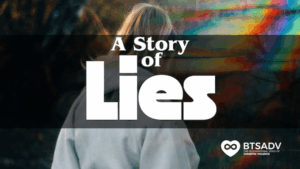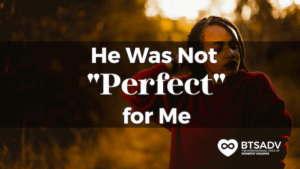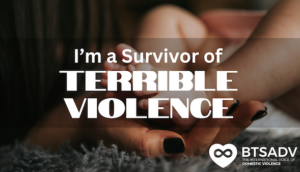By Kelly Sutton
One of the hardest parts of surviving abuse isn’t just what you went through, it’s how people treat you afterward.
I learned that the hard way on a family trip to Disney. What should have been a magical escape, filled with laughter and togetherness, turned into one of the most lonely experiences of my life.
Kept at Arm’s Length
From the very beginning of the trip, I could feel the difference. My sisters, my mom, even my dad all kept me at arm’s length. Conversations that once would have included me now went quiet when I walked into the room. Smiles felt forced. While my children were fully embraced, I was treated like an outsider.
The only exception was my brother-in-law.
He didn’t change how he treated me and his small gestures of kindness were the only thing that kept me from feeling completely invisible. But even with that, the overall message from the rest of my family was clear: I no longer belonged.
The Breaking Point
That distance and tension simmered all week until the last night, when it boiled over into an argument with my sister. Her words still echo:
“You’re a liar for not telling us. No one will ever trust you again.” “This is your fault for letting it go on as long as it did.” “I never would have allowed this to happen to me.” And “I’ll never forgive you for allowing him around my family.”
Why Those Words Are Not Okay
Words like these are not just cruel, they are dangerous. They reflect victim-blaming, a narrative that places responsibility on the survivor instead of the abuser. Telling me it was “my fault” ignored the years of manipulation, control and fear I lived under. Saying it would “never happen to her” implied that I was somehow weak or defective, when in reality, abuse can happen to anyone. The hardest blow, vowing never to forgive me for something I didn’t cause, reinforced the very shame and isolation my abuser had worked so hard to instill.
Those words didn’t just wound me in the moment, they echoed every toxic message survivors are already fighting against. They told me I wasn’t believed, I wasn’t trusted, and I wasn’t worthy of forgiveness for something that was never mine to forgive in the first place. In that moment, I felt guilt, shame and absolutely worthless.
The Aftermath
My mom afterwards told me that they “all kinda feel that way.” My dad and other sister did not come to my defense, at that moment or after. For a long time, I carried that pain, feeling completely abandoned by the very people who should have been my foundation.
Over time, I’ve worked on repairing my relationship with my parents. It hasn’t been easy, but we’ve slowly rebuilt trust, and they’ve shown me that healing is possible even after deep hurt.
However, with my sisters, something shifted in me that night at Disney. Part of me realized we never truly had the bond I had always longed for. Walking away forced me to see just how judgmental they had been toward me for years. It also made me wonder if that judgment was the reason I never felt safe enough to tell them or my parents about the abuse while it was happening. Their reaction confirmed the fear that had kept me silent all along.
The Double Loss Survivors Carry
Abuse already steals so much, your safety, your confidence, years of your life. But what happened at Disney showed me the second wound survivors often face: the loss of family support. Instead of being embraced, I was blamed. Instead of being protected, I was condemned. And instead of being defended, I was left standing alone.
Even in the “happiest place on earth,” surrounded by parades and fireworks, I had never felt so isolated.
What Survivors Need Instead
Consistency: Keep showing up the way you always did. Share the closeness, the conversations, the everyday love. Listen to their story without judgement. For some survivors, this might be the first time they are telling their story.
Validation: Survivors need to hear, “I believe you. This wasn’t your fault.” Continue to tell them, because they won’t believe you the first, second or even the tenth time.
Protection, not silence: Families and friends must understand that their response can either break a survivor further, or help them heal. Without a support system, a survivor can feel like they’re fighting their battles alone, carrying not only the weight of the abuse but also the silence of those they thought would stand beside them.
A Message to Families and Friends
If someone you love discloses abuse, your response matters more than you may ever realize. Survivors have already endured cruelty and betrayal at the hands of an abuser. Don’t let your silence, or your blame, become another form of betrayal.
The trip to Disney isn’t remembered for the rides or the magic.
It will be remembered for the way my family made me feel like I didn’t belong all week, and the moment it ended with blame and condemnation instead of love.
I’ve learned that sometimes relationships can be repaired and sometimes they cannot. My parents and I have been able to rebuild, but I no longer have a relationship with my sisters. While that loss hurts, I know now that their reaction was never a reflection of my worth, it was a reflection of their own inability to face what happened.
Hopes for Surviving Without Support
My hope in sharing this is that someone else’s sister, parent, or loved one will pause before reacting with anger, silence, or judgment. Survivors don’t need more loss. We need love. We need safety. AND we need family and friends who stand with us, not against us.
At Break the Silence Against Domestic Violence, we remind survivors: even when some relationships can’t be repaired, your story still matters and your healing is still possible. You are not to blame, you are not alone, and you deserve to be surrounded by people who see your strength, not your scars.
Check These Resources:
- Therapeutic Interventions for Healing From Domestic Violence
- The Hidden Impact of Teen Dating Violence
- Find Support with BTSADV
Support Line
Other Resources and Information:



